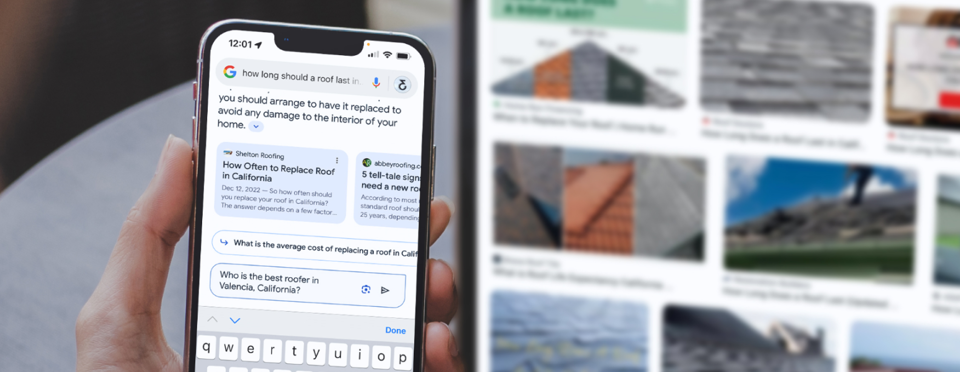How Much Do Google Ads Cost?
This is a long-standing question for any small business owner. The answer varies based on your industry, your audience, and your ad strategy—but it all starts with understanding who your customer is and what they’re searching for.
Digital advertising plays a central role in any small business marketing plan, and when it comes to showing up at the exact moment someone is looking for your services, Google takes center stage.
Are Google Ads Worth It?
Google Ads is Google’s pay-per-click (PPC) advertising platform that allows you to bid on keywords so your ads can appear at the top of search results. It’s known for delivering a solid return on investment (ROI)—and it’s still the most widely used PPC network in 2025.
Because you only pay when someone clicks your ad (not for the placement itself), Google Ads gives you full control over how and where your money is spent. Whether you run a local HVAC business, a Criminal Defense lawyer, or a multi-location franchise, you can tailor your spending to attract the right customers.

How Do Google Ads Work?
Google Ads runs on a real-time auction system. Every time someone types a search query, an auction happens behind the scenes to determine which ads appear, in what order, and at what cost.
Two main factors determine where your ad lands:
Your Max CPC Bid – The most you're willing to pay for a click
Your Quality Score – A score from 1 to 10 based on expected click-through rate, ad relevance, and landing page experience
Google multiplies these two inputs to calculate something called Ad Rank:
Ad Rank = Max CPC Bid × Quality Score
You can beat a competitor with a higher bid if your ad is more relevant. In 2025, Google continues to prioritize relevance and user experience.
Calculating Your Cost Per Click (CPC)
Your Cost Per Click (CPC) is the actual amount you pay when someone clicks on your ad. It’s not necessarily your max bid—in fact, you often pay less than what you offered.
To get your average CPC, use this formula:
CPC = Total Advertising Cost ÷ Number of Clicks
Example:
Total Spend: $2,000
Total Clicks: 500
CPC = $2,000 ÷ 500 = $4.00 per click
But here’s where things get interesting. In the Google Ads auction, your actual CPC is determined by the Ad Rank of the advertiser below you, divided by your Quality Score, plus one cent:
Actual CPC = (Ad Rank of the ad below yours ÷ Your Quality Score) + $0.01
This rewards advertisers who run relevant, high-quality ads with better positions and lower costs.
In short: Better ads = Lower CPC + Higher Position
Smart advertisers win by scoring higher, not spending more.
How Much Do Google Ads Cost?
The cost of Google Ads depends on your industry, your competition, and how well your campaigns are managed.
The average for small businesses is:
Search Network: $1–$2 per click
Display Network: Typically under $1 per click
Highly competitive keywords—like those in law, finance, or insurance—can reach $100+ per click. If you're working as a personal injury lawyer, you may be paying $500+ per click. That’s because a single customer can bring in thousands of dollars in revenue.
For most small and mid-size businesses, monthly ad budgets range between $1,000 and $10,000, or $12,000 to $120,000 annually.
3 Key Factors Affecting Google Ads Costs
1. Industry
Some industries are more competitive. Legal, home services, and medical fields often see higher CPCs because the value of a new customer is substantial.
2. Customer Lifecycle
In longer sales cycles, people might click multiple times before converting. Stay visible throughout their journey with smart retargeting and optimized landing pages.
3. Market Trends
Consumer behavior and ad competition change fast. Monitoring search trends and seasonality helps you stay ahead and bid smarter.

Managing Your Google Ad Costs Like a Pro
Your costs depend heavily on how well your account is set up and managed. Here are some best practices to keep your costs low and your returns high:
- Build a strong campaign structure with tight ad groups and relevant keywords
- Use negative keywords to avoid paying for unqualified traffic
- Write clear, compelling ad copy that speaks to user intent
- Optimize your landing pages for speed, mobile use, and conversions
- Use conversion tracking and data-driven bidding strategies
- Test regularly and refine based on performance data
How Much Should You Spend on Google Ads?
Start with your customer value. If one new customer is worth $1,000, spending $50 on a click that converts is more than worth it. If your average order is $25, you’ll want a much lower CPC.
You don’t need a massive budget to win—just a smart one. Start small, test aggressively, and scale what works.
Pro Tip: Unlike traditional media, digital ads give you full control. You can pause underperforming campaigns, shift your budget in real time, and optimize daily.
Is It Worth Paying for Google Ads?
Absolutely—when done right.
Google dominates the search market, and most people click ads when they’re ready to buy. It’s a fast, trackable, and scalable way to get in front of people searching for exactly what you offer.
Pro Tip: Combine Google Ads with strong SEO and you’ll have both short-term leads and long-term visibility.
Need Help With Your Google Ads?
If you want expert help managing your campaigns, Scorpion is here. We’ve helped thousands of small businesses grow with Google Ads by combining strategy, technology, and hands-on support.
Our platform automatically allocates your budget toward the best-performing campaigns—and shifts spend when performance drops. We also build and optimize your website to turn traffic into revenue.
Let us do the heavy lifting so you can focus on running your business.


.0000000000000.png)


